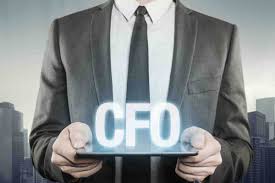
To say that the UK is facing a set of unprecedented circumstances right now would perhaps be one of the greatest understatements of the year. Business leaders are under intense pressure to find a way of navigating their organisations through these choppy seas towards calmer waters. And it is the chief financial officer whose expertise and knowledge are being called upon more than most to help CEOs achieve this.
The role of the chief financial officer (CFO) has witnessed a spectacular transformation in recent years - perhaps more so than any other within the senior executive team. But what is the driving force behind this change, and how is this re-shaping what the future CFO will look like?
Gone are the days when an organisation’s lead finance specialist was regarded as its chief bean counter or perceived as little more than that of a ‘back office’ function. Rather, today’s CFOs sit tall at the heart of the business. They are trusted advisors for CEOs and have a very clear and influential voice within the boardroom. In fact, of all the members within the C-suite, it is the CFO who is now most likely to act as counsel for the CEO.
Indeed, irrespective of economic conditions, the CFO will tend to be the figure responsible for ensuring that the organisation’s strategy – from a financial perspective – remains on track. It is they who key stakeholders will look to (and press hard) on how the organisation is performing and how it is likely to fare in the face of certain challenges that lie ahead, such allocation of resources, automation and the wider debate over the digitalisation of the finance function itself. Put another way, the CFO is essentially the ‘custodian’ of the CEO’s manifesto.
This is a role like no other within the C-suite. Today’s CFO’s must be strategic in approach, to develop ways of future proofing the business. They are increasingly being called upon to facilitate decision making which is aimed at ensuring the organisation can stave off major threats and unplanned challenges to protect its reputation and maintain stakeholder and investor confidence.
Of course, to do this effectively means that CFOs must demonstrate a blend of very specific skills and traits - emotional intelligence being one of them. Globalisation is seeing CFOs having to manage a finance function across several jurisdictions, diverse cultures, and different time-zones. Understanding these nuances can be challenging and many CFOs now find themselves managing distributed teams and ensuring they are each aligned to the organisation’s strategy and overriding goals.
There is also a degree of protectionism, too. Consumer trust in organisations took a nose-dive after the last recession and this spurred the need for greater corporate transparency. This is where today’s CFO plays a leading role. Not only do they have the technical expertise to perform their role, CFOs can identify and mitigate risk before it escalates. They react calmly and with confidence and have the trust (and reliance) of their CEO.
In fact, such is the degree of interdependence between the CFO and CEO that their careers are often inextricably linked; when a CEO moves to another organisation it is not uncommon for their CFO to follow them. This is a dynamic with few, if any, rivals within the C-suite and perhaps explains why Deloitte describes the role of the CFO as ‘chief steward, operator, catalyst and strategist’ for the organisation.
According to Accenture, the role of the CFO “is now in the midst of an even more radical change.” They are right. This is a position that demands individuals have a wide range of capabilities that both embrace data and technology while understanding the strategic imperative at the same time.
CFOs are the innovators, inquisitors, data harnessers, forecasters, challengers, and protectors that are seeing a shift in the DNA of what we view as a ‘typical’ CFO. It is a balance that business leaders need to address. But get it right and the organisation is well-placed to achieve its growth objectives both in the short and long term.